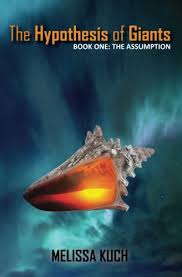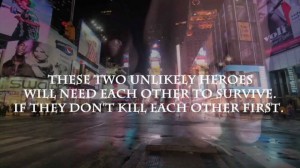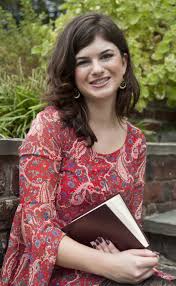 Though it occurred inside St. Patrick’s Cathedral, New York City’s iconic Catholic house of worship, the last stand for religious freedom included members of many faith traditions. They didn’t all agree on theology, but they were united in believing they had a right to practice their religion without fear of government interference. The government, however, with the consent of its citizens, now decreed that was not the case. No one had the right to practice any religion anymore – and no one had the right to voice any opinions that differed from the ruling party. The resulting massacre ended with 15 pro-religion rebels dead and 40 arrested. Freedom of speech and religion were officially outlawed in the newly designated United States for the Common Good.
Though it occurred inside St. Patrick’s Cathedral, New York City’s iconic Catholic house of worship, the last stand for religious freedom included members of many faith traditions. They didn’t all agree on theology, but they were united in believing they had a right to practice their religion without fear of government interference. The government, however, with the consent of its citizens, now decreed that was not the case. No one had the right to practice any religion anymore – and no one had the right to voice any opinions that differed from the ruling party. The resulting massacre ended with 15 pro-religion rebels dead and 40 arrested. Freedom of speech and religion were officially outlawed in the newly designated United States for the Common Good.
Fifteen years after that fateful event is when author Melissa Kuch’s debut young adult fantasy novel “The Hypothesis of Giants – Book One: The Assumption” begins. Though the subject matter sounds heavy, Melissa seamlessly weaves these underlying themes into a compelling tale filled with humor, romance, and adventure.
Life for teens in the United States of the Common Good isn’t all that different than life in the real U.S. today: there’s school, Facebook, parties, etc.
Aurora Alvarez, age 15, struggles with the same insecurities that many young women endure, especially the ones who feel like they don’t fit in. The author writes, “Neighbors were keen on mentioning [Aurora’s] beautiful features but her unfortunate weight. ‘The pretty frump girl,’ she was known as on Wishbone Avenue, as she had struggled with her weight since she was in elementary school. Though she was an active teenager, she did have a larger midsection than the other stick thin girls who attended Candlewick High School, which made her feel more like a giant compared to them.”
The fact that Aurora’s mother makes her feel like she’s not pretty enough contributes to her self-esteem woes. Maybe that’s one of the reasons she responds to the idea of being a hero: she wants to prove to herself and the world that she’s more capable than they give her credit for.
That world that surrounds Aurora is an interesting, but dangerous one. She has grown up in a country led by a mysterious figure known as the IDEAL, who subjects everyone to an enforced uniformity designed to make people happy: “The IDEAL said that if everyone conformed to one idea, then there would be no fights or wars over opposing thoughts or beliefs.”
Though Aurora’s father works for the government, he secretly teaches his daughter about historical events that he is forbidden to discuss under threat of imprisonment. In the United States for the Common Good, libraries have been closed while school curriculums only include officially approved history. After all, it wouldn’t serve the government’s purpose to teach young people about the Revolutionary War when the principles and freedoms on which the original United States was founded had been abolished.
While Aurora’s father is well aware that the government is feeding people pure propaganda, her mother holds a different view. She says, “We may not like everything about the Common Good government, but it is better than what we had. Remember when there were those horrible religions fighting against each other? We needed the IDEAL to step in and contain those fanatics and make peace at whatever cost was necessary. Remember, what is best for the common good is what’s best for everyone.”
Interestingly, the state of the nation isn’t something that was solely imposed by a violent and powerful fanatical group; it was imposed by voters. As one newspaper article at the time stated following the confrontation at St. Patrick’s Cathedral, “Since the Common Good won the majority party in government, their followers have already begun tearing down signs of churches, mosques, temples, and other places of worship and converting them into IDEAL meeting houses…The Common Good has finally declared to loud pandemonium and cheer that after two years of unrest and war, freedom of religion has been abolished. A brighter future has been initiated for all in the newly established United States of the Common Good.”
Essentially, the famous Benjamin Franklin quote – “They that can give up essential liberty to obtain a little temporary safety deserve neither safety nor liberty” – has been brought to fruition. Citizens even remotely suspected of thinking differently simply disappear. And no one bothers to ask questions because they’re scared for their own lives or have been lulled into a mindless apathy.
 Aurora’s heroic quest begins when she hears the sound of a conch shell emanating from the house across the street. When she investigates along with Boreas Stockington, the neighborhood bad boy who could be a potential love interest, they stumble across both another dimension and a giant.
Aurora’s heroic quest begins when she hears the sound of a conch shell emanating from the house across the street. When she investigates along with Boreas Stockington, the neighborhood bad boy who could be a potential love interest, they stumble across both another dimension and a giant.
That’s right, a giant. Not a brooding vampire, a lovestruck werewolf or a flesh-eating zombie, but a refreshingly innocent and friendly giant named Otus. As I read his dialogue, I kept imagining the voice of Frosty the Snowman from the animated Christmas special. Otus struck me as having that kind of appealing personality, just taller and potentially more dangerous.
Otus has been expecting Aurora and Boreas because of a particular prophecy that suggests the three of them are supposed to help stop a world-damaging cataclysm from happening. That sets them on a quest that pits them against the forces of the United States for the Common Good – and will take them to the ends of the earth.
In addition to the engaging story and characters, one of the main strengths of “The Hypothesis of Giants: Book 1″ is the way it weaves important themes about freedom and faith into the narrative without getting preachy. Author Melissa Kuch isn’t making a statement; she’s simply telling a compelling story. This is especially important because the young adult audience at which the book is aimed doesn’t like getting preached at.
In fact, the book isn’t promoting any particular political or religious viewpoint. In terms of politics, it simply suggests that the values on which the United States were founded were good ones and should be preserved, even if that’s difficult at times. Stifling it requires violence and a human being who sets himself or herself up as God. Historically speaking, that set up never ends well for anyone involved.
In terms of religion, the book’s approach is appropriately egalitarian for a wide audience. Characters who cite beliefs that are Christian, Jewish, Muslim, Buddhist or Hindu are given equal respect and dignity. The story is much more focused on the importance of allowing the religious impulse inherent in so many people to be allowed to flourish, the good that can result from faith, the notion that religion and science are not enemies, and the concept that there is a greater reality at work in the universe beyond what our eyes can see.
However, the story isn’t simplistic about our religious tendencies. There’s no doubt that society has had to endure its share of violence being perpetrated in the name of God. It was that constant fighting within and between religious groups that allowed the IDEAL to rise to power in the first place. The author, therefore, takes the right approach by not depicting all religious believers as perfect saints, and all the government’s people as pure evil. Everyone is flawed, which is the way people really are.
It does seem that Aurora will be taking a spiritual journey of her own, though. The author handles her curiosity about religion in a subtle, but meaningful way.
 For instance, when walking through the house that will lead her to Otus, Aurora sees the following: “She followed the mustard-yellow carpet that led her to a narrow corridor with medieval paintings fastened to the walls. She saw one of a cross and peered at it most curiously. The symbol of Christianity. She recalled reading about it online by the author Thomas Young. He had been arrested after getting the story through the government security censures and had found a way to distribute the story to whoever had been online at that moment. Aurora had been one of those people and had read the story about a man named Jesus who could perform miracles. He had died for the people’s sins. Aurora had read the story, fascinated, but thinking it very farfetched. Immediately after the release, Thomas Young had disappeared, never to be heard from again, and the story was destroyed out of her inbox. But they hadn’t found a way to destroy her memory.”
For instance, when walking through the house that will lead her to Otus, Aurora sees the following: “She followed the mustard-yellow carpet that led her to a narrow corridor with medieval paintings fastened to the walls. She saw one of a cross and peered at it most curiously. The symbol of Christianity. She recalled reading about it online by the author Thomas Young. He had been arrested after getting the story through the government security censures and had found a way to distribute the story to whoever had been online at that moment. Aurora had been one of those people and had read the story about a man named Jesus who could perform miracles. He had died for the people’s sins. Aurora had read the story, fascinated, but thinking it very farfetched. Immediately after the release, Thomas Young had disappeared, never to be heard from again, and the story was destroyed out of her inbox. But they hadn’t found a way to destroy her memory.”
In the interest of full disclosure, I should say that Melissa Kuch interned at The Christophers about ten years ago, but she didn’t ask me to review this book. I downloaded the free sample to my Amazon Kindle and had my curiosity piqued when I saw the themes present in the story. As a first-time novelist, Melissa displays talent and wisdom that should take her far. In my opinion, “The Hypothesis of Giants; Book 1” deserves to be a giant success among tweens and teens.












